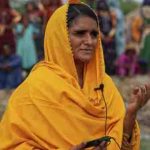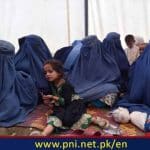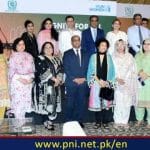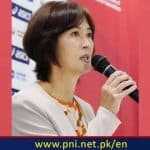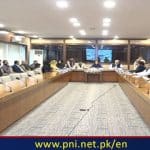Every woman has the right to exercise her reproductive rights and to be protected from violence and harmful practices in both the development and humanitarian contexts. Pakistan Vision 2025 has embedded five components of women’s empowerment into its objectives, including activities that promote women’s self-worth, right to determine their choices, access to opportunities and resources, right and power to control their lives – both within and outside the home – and ability to influence social change. However, these still remain outside of the grasp of women in Pakistan.
Gaps in empowerment are seen at the earliest stages of a girl’s life. At every step, girls, adolescents and women face challenges and obstacles in making their own choices and determining their own path in the lives they wish to live.
UNFPA’s role
Through the new Country Programme (2018-2022), UNFPA is working across a wide range of areas to ensure that the many cross-cutting issues on gender equality and empowerment are targeted through critical interventions, policy and advocacy.
UNFPA works at every level of society to empower women, including the most marginalized and vulnerable women and girls, to help them to make informed decisions and choices over the important aspects of their lives, especially around their reproductive rights. This means working with youth and communities to empower girls to understand their rights, work with policy-makers on creating and implementing policies that respond and protect the needs and rights of girls and women.
Photo: A young girl walks home in a slum in Peshawar city, Khyber Pukhtoonkhwa (KP). In many communities in KP where water supply is scarce, women journey long distances carrying heavy pots of water.
UNFPA works to strengthen the policy, legal and accountability frameworks to empower women and girls, especially those most vulnerable and marginalized. Promoting community-based, women and youth-centered initiatives, UNFPA helps build resilience and empower communities to confront and address the barriers to their sexual and reproductive health. Working with government, UNFPA helps link economic development with women’s empowerment needs, responding to the lack of robust and reliable data on the gaps and obstacles faced in women’s economic empowerment. Highlighting the data on these topics will enable the monitoring of Sustainable Development Goal 8 on inclusive and sustainable economic growth and promote the mainstreaming of gender-based initiatives into government economic development strategies.
Working closely with the Women’s Commission in Pakistan, UNFPA has helped develop and strengthen their capacity to respond to their objectives in advancing women and girls’ rights. UNFPA has and will continue to collaborate with the Commissions to support and enhance their capacity to generate, analyze and disseminate data to inform policy, advocacy and interventions aimed at empowering women and girls, in particular, toward the realization of their reproductive health and rights.
Within both development and humanitarian settings in Pakistan, UNFPA also aims to strengthen the capacity of the public sector and civil society to advance gender equality and prevent and respond to gender-based violence. UNFPA helps develop and strengthen multi-sectoral coordination mechanisms, working with national and provincial disaster management authorities, population and health departments, non-governmental organizations and partner UN agencies. These coordination mechanisms help track and monitor laws and policies on women’s rights, prevent and respond to gender-based violence and promote gender equality within humanitarian and development contexts.
Follow the PNI Facebook page for the latest news and updates.



